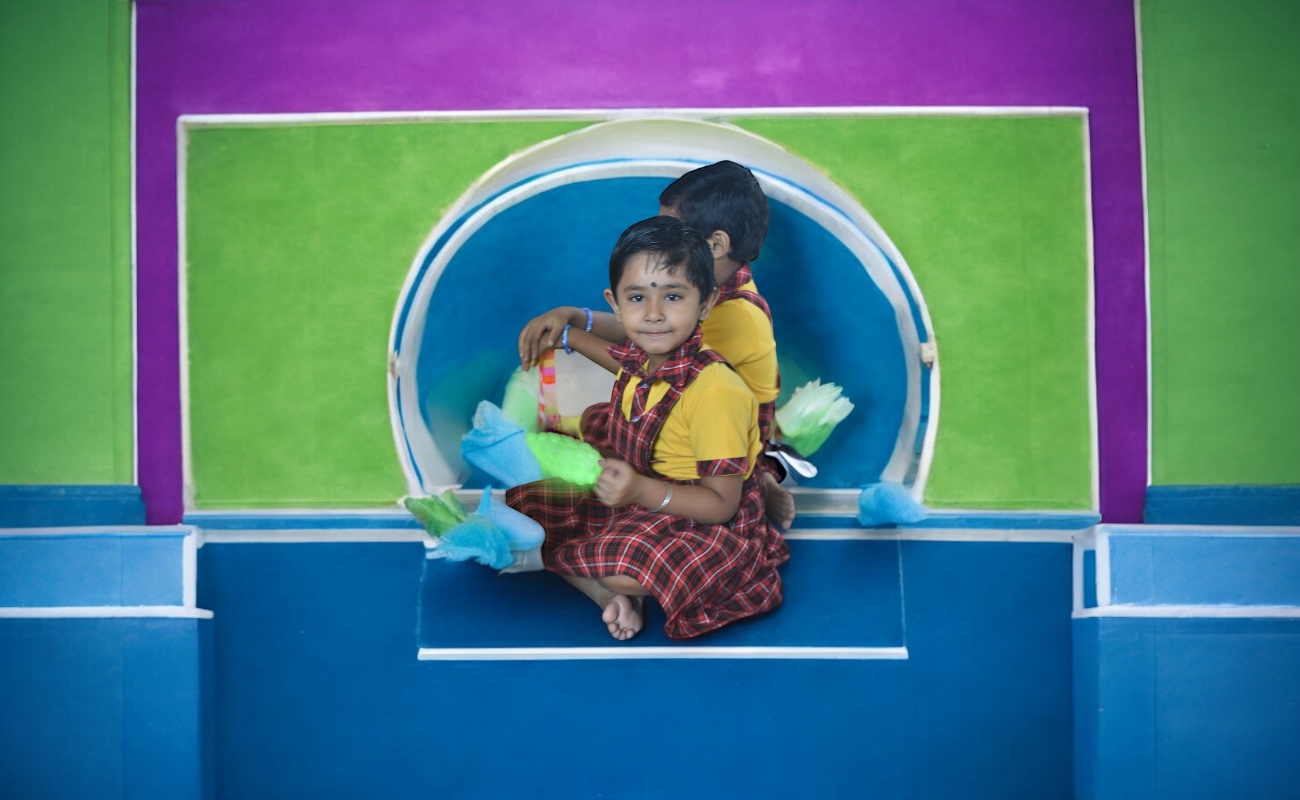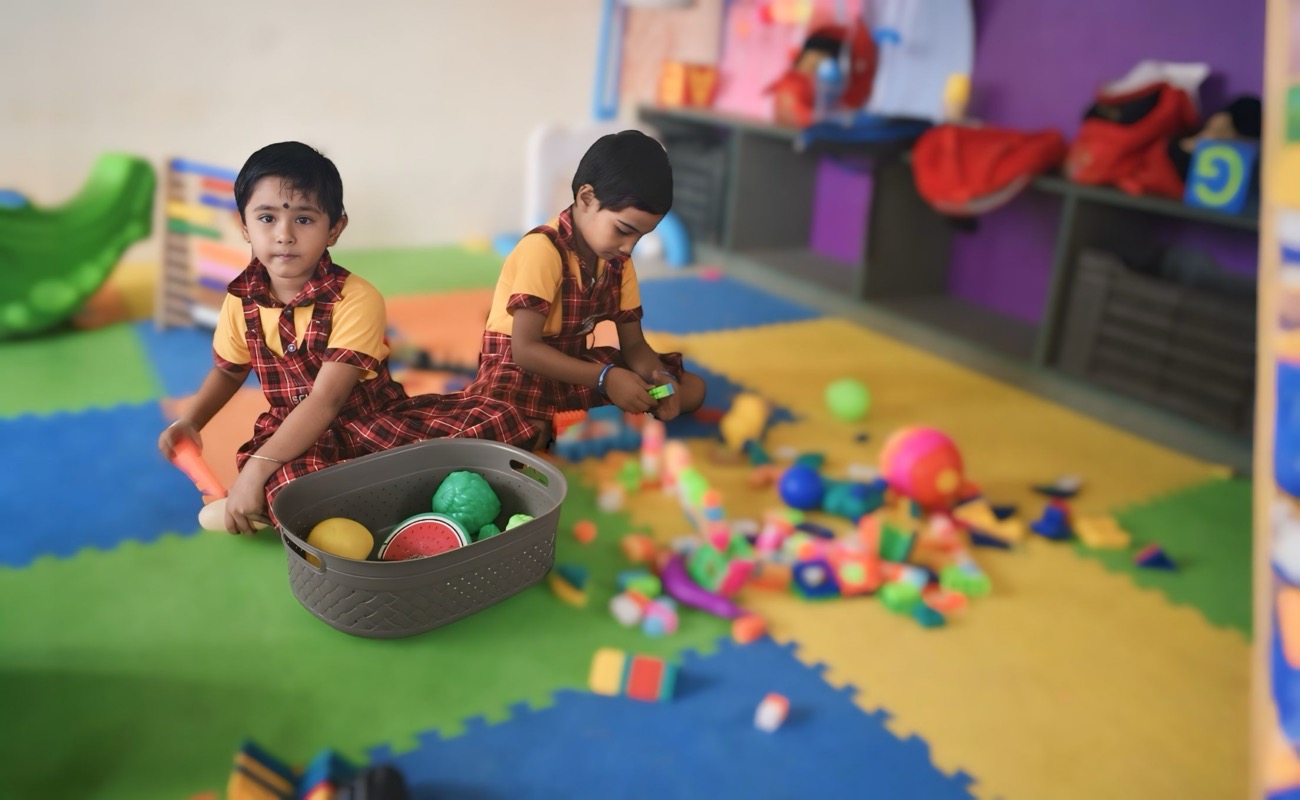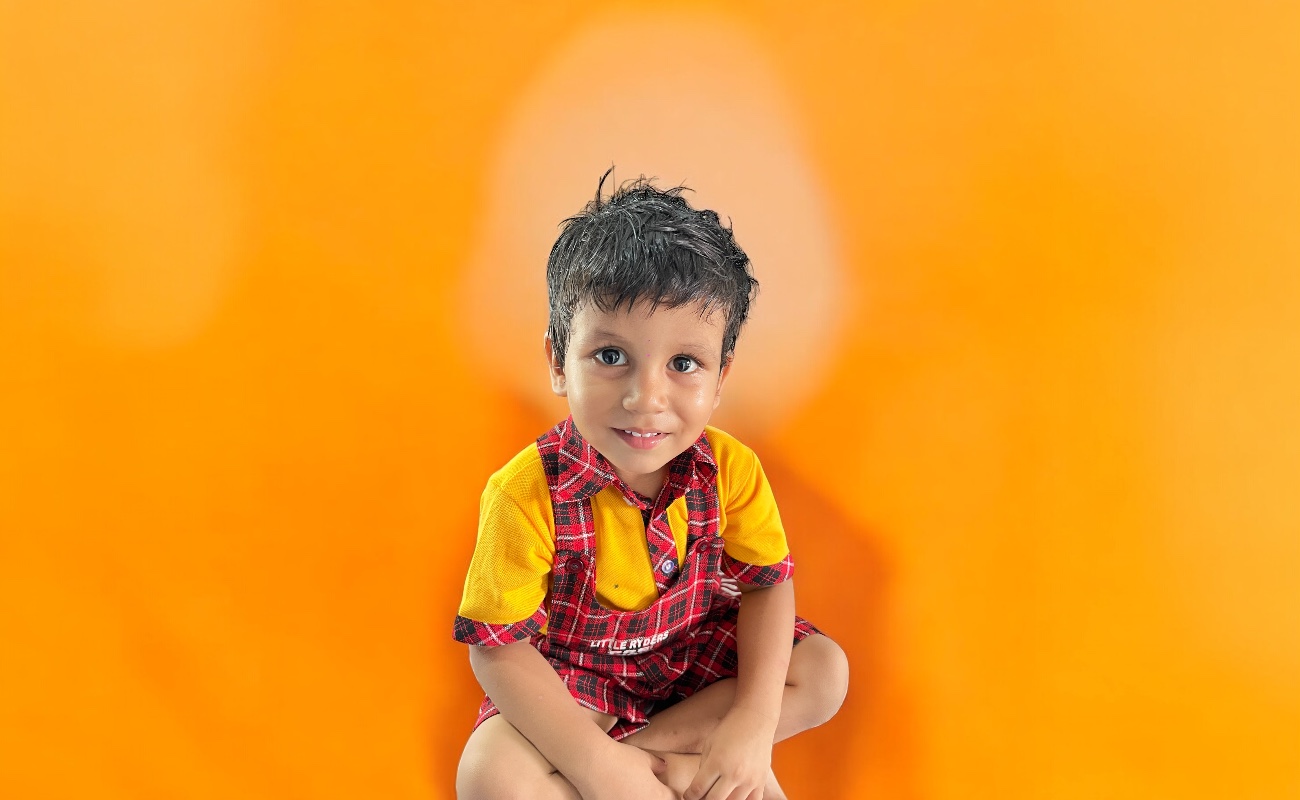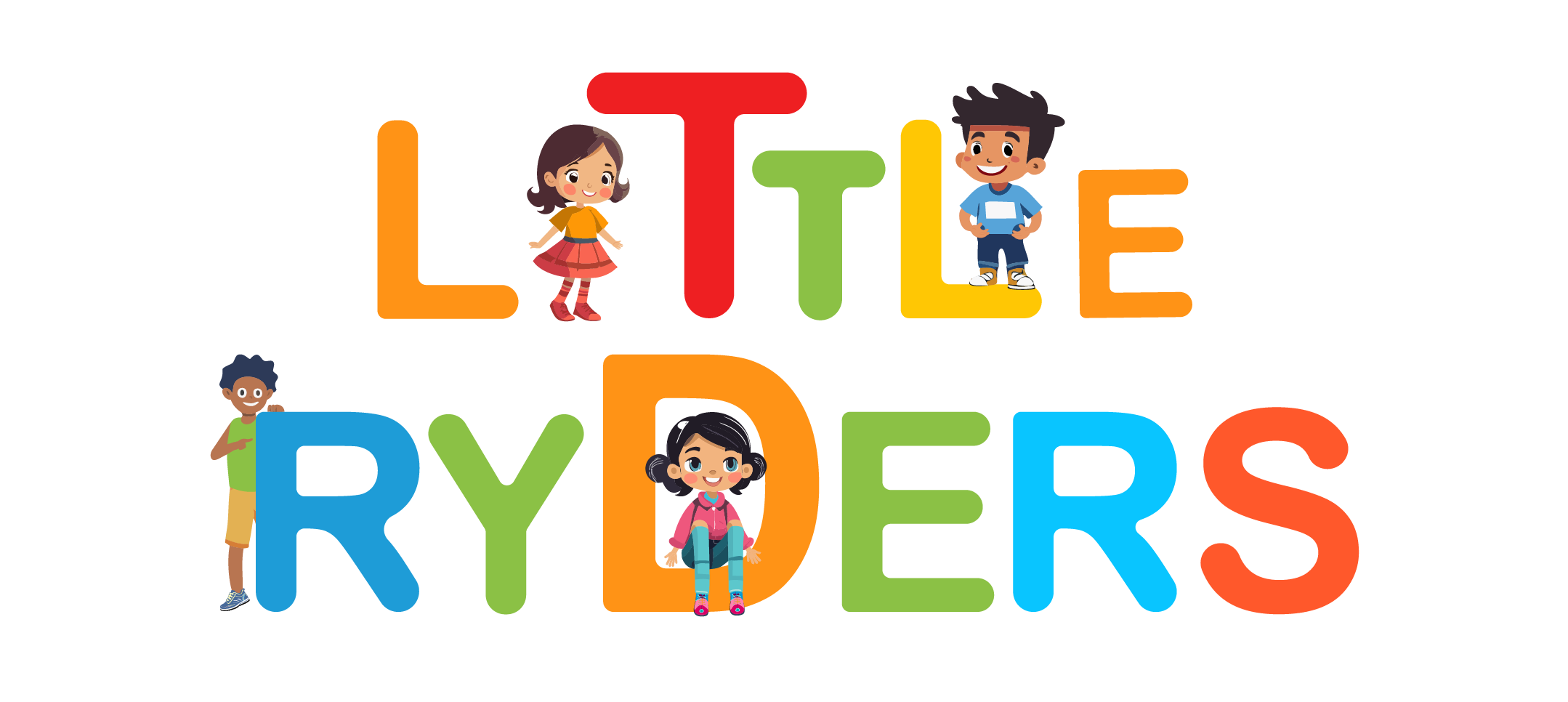Junior K.G / LKG .
4 - 5 Years
As per the Right to Education (RTE) and the National Education Policy (NEP), requirements vary from state to state.
Junior Kindergarten (Level 2): This stage is part of the Foundational Stage 1, as mandated by NEP. At Little Ryders, the Junior Kindergarten curriculum builds on the foundation established in the nursery years. Age-appropriate activities in areas such as language, numbers, general knowledge, music, and art are conducted in a structured manner throughout the program. Our specialized programs in Phonics and English Readiness ensure that children are well-prepared for further learning. Development is assessed three times a year through a carefully designed evaluation process.

Senior K.G / UKG.
4 - 5 Years
Senior Kindergarten (Level 3): This stage continues the progression from Junior Kindergarten, maintaining the standards set by the NEP. The Senior Kindergarten curriculum at Little Ryders supports a smooth transition to formal schooling. We offer a range of activities that enhance language skills, numeracy, general knowledge, and creative expression. Our proprietary programs in Phonics and English Readiness, combined with regular assessments, help to prepare children for the next steps in their educational journey.

Signature practices
Our World at Little Ryders curriculum includes preschool Signature Practices that offer hands-on approaches to encourage the skills your child will need in kindergarten and beyond:
- Everyday Mathematics®: Using numbers in daily activities to make math a part of everyday life.
- Cooking with Recipes: Creating in the kitchen to learn about counting, measuring, and fractions
- Daily Pre-Reading, Writing, Listening, and Speaking: Stories and literature to promote the understanding of the relationship between speech and print
- Writing Center: Access to a wide variety of writing tools, paper, and other materials to inspire an interest in writing, creating books, and more
- Science Laboratory: Hands-on opportunities to collect, examine, explore, and experiment with natural materials
- STEM Activities: Building and problem solving using science, technology, engineering, and math
- Woodworking: Real tools and materials to tinker, construct, and explore weight, balance, strength, and texture

